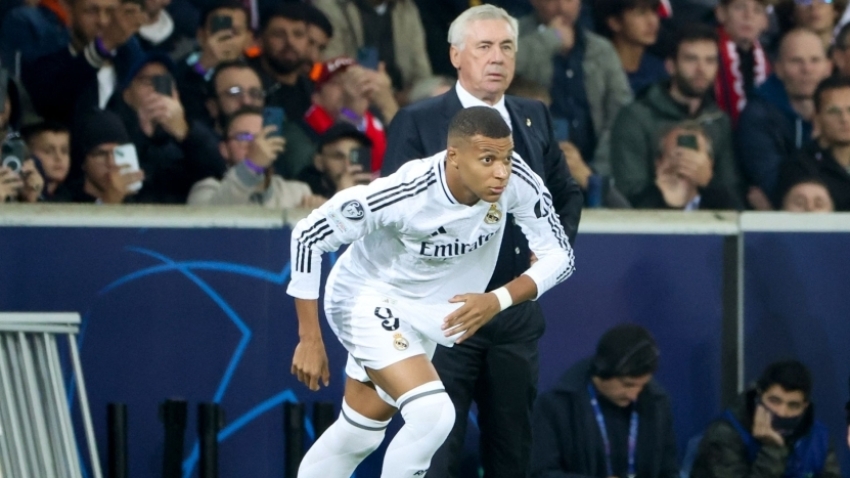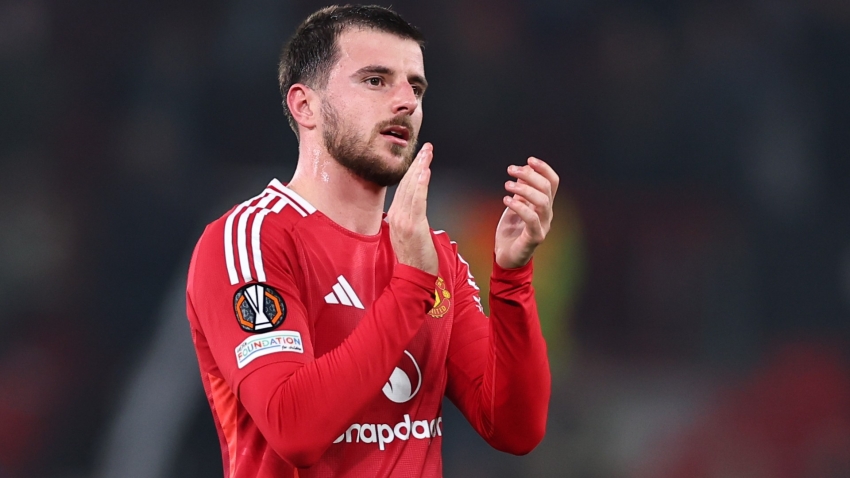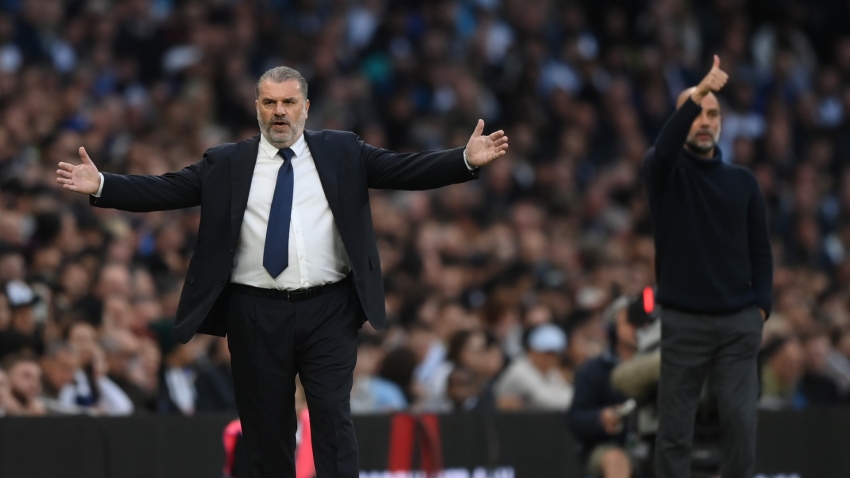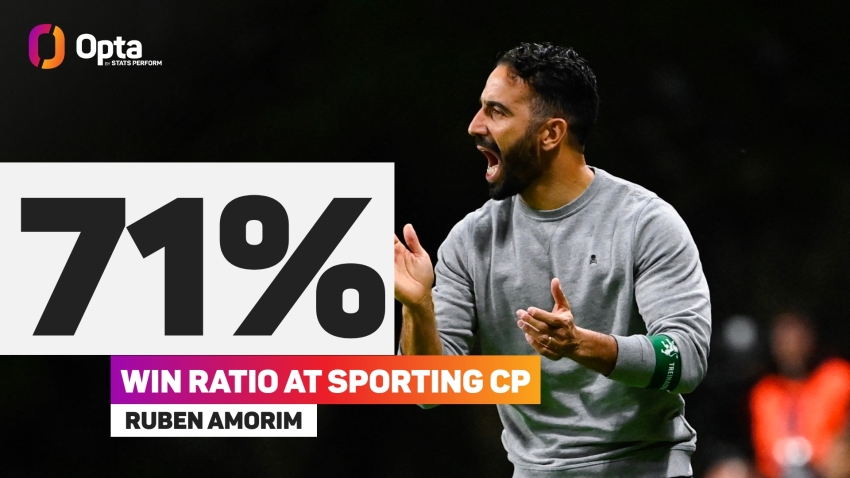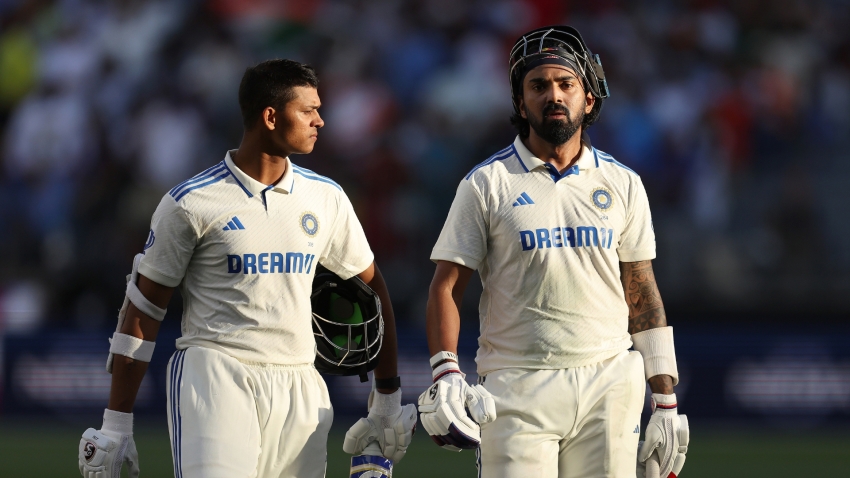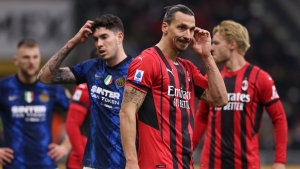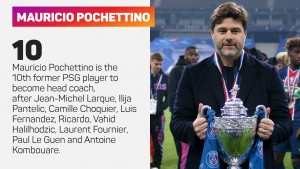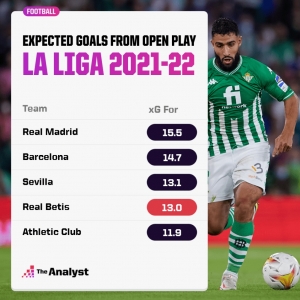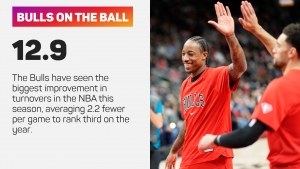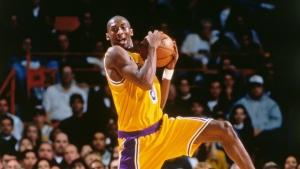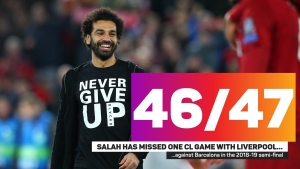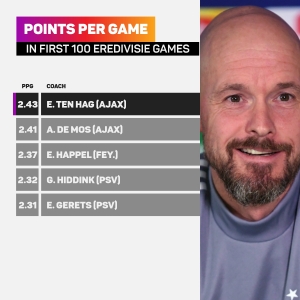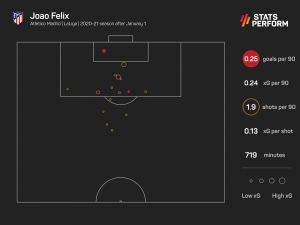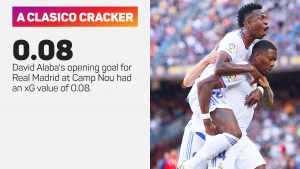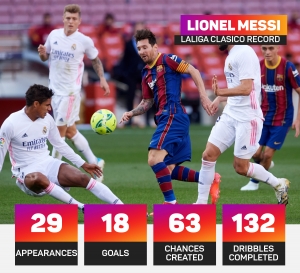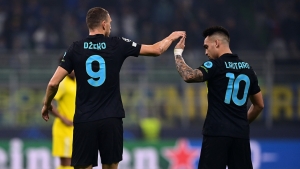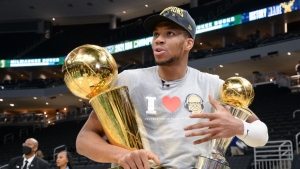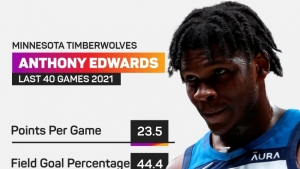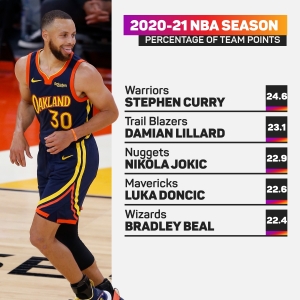Over the past 17 years or so, few – if any – fixtures in world football have been more synonymous with drama, chaos and, above all, the world's best players than El Clasico.
In a way, we probably came to take it for granted what El Clasico meant in terms of entertainment and quality.
Of course, Lionel Messi and Cristiano Ronaldo became the star attractions of the contest, El Clasico almost becoming its own side story in the wider narrative of their Ballon d'Or rivalry.
Ronaldo's 2018 departure took away one element, and some might even suggest it impacted Messi negatively as well, as he failed to have a hand in a single Clasico goal after his old nemesis moved on.
Now both are gone, with Sunday's Clasico at Camp Nou the first of an era in which neither Messi nor Ronaldo will play any part.
The last season that didn't have either Messi or Ronaldo make a Clasico appearance was 2004-05, and as such there are many people who feel LaLiga has lost some of its lustre, even with Karim Benzema showing the kind of productivity that is unrivalled across the top five European leagues.
That's perhaps partly – along with the slow re-establishment of the tourism industry in the wake of the coronavirus pandemic – reflected by the fact there were still 52,000 tickets available for the match as of Tuesday morning.
But that's not to say these squads aren't worth watching. El Clasico may be at the start of a transitional period itself, but there are talents in both teams who look capable of defining this fixture for the next 10 to 15 years.
AN ARCHETYPAL BARCA MIDFIELD
Would Ronald Koeman be putting so much faith in younger players were it not for Barca's financial troubles? Even when you consider the club's history with La Masia, that's debatable.
But here we are, eight matches into the 2021-22 LaLiga season and only two clubs in Spain's top flight have a younger average starting XI age than Barca (26 years, 174 days). That highlights the significance of their squad replenishment since 2017-18, when their average starting XI age was 28 years, 36 days old – the fifth oldest in the division.
Nowhere in the Barca team is that more noticeable than in midfield, where youngsters are being forced to mature very, very early.
Gavi had only ever played two league games for Barca's second team before this season, and despite having just five LaLiga outings under his belt, he became Spain's youngest ever international earlier this month.
But the key thing to remember is, the talent – and seemingly attitude – is there. Gavi and Nico have made the step up this season to join Pedri, which could feasibly be Barca's long-term midfield trio, such is the ability and skillset the three teenagers have so far demonstrated.
Sadly, Pedri is likely to miss the Clasico this weekend due to injury, but the remarkable ease to which he took to LaLiga last season provided every shred of evidence needed to consider him a genuine key figure already. The maturity he showed at Euro 2020 only cemented that.
Pedri performed an integral function in Luis Enrique's team as he complete more final-third passes (177) than any other player at the Euros, the teenager proving to be hugely dependable when it came to helping keep Spain in possession and on the front foot in those tighter areas of the pitch.
Of course, the way Spain play means their players are likely to have more passes than others, but the fact he fitted in so quickly speaks volumes. Andres Iniesta comparisons have never been far away, even while he was still at Las Palmas, and it's his excellence in this kind of facilitator role that lends further credence to it.
Pedri was involved in 4.2 shot-ending sequences per 90 minutes last season, which was only bettered by five players who ordinarily play in central midfield roles – Frenkie de Jong (5.0) ranked highest. While Iniesta averaged 5.1 each game back in his prime in 2015-16, that dropped to 2.9 in his final season, highlighting how Pedri is absolutely on the right track in terms of influencing Barca's build-up play.
But the beauty of the options Barca have coming through at the moment is that Pedri can realistically expect to have plenty of assistance when it comes to managing the side's considered, possessional style.
Gavi has a particularly interesting profile. While he's undoubtedly comfortable on the ball with respect to both passing and dribbling – his nifty turn to spin around Paul Pogba before getting a shot away in the Nations League final was proof of that – he's also a feisty individual.
He's engaged in 14.5 duels per match on average this season. Going back to the start of 2020-21, the only Barca players (minimum of 300 minutes played) to be more involved in that respect are Messi (14.9) and Ilaix Moriba (17.4).
Of course, it's worth pointing out he still has a lot of room for growth here. Gavi's already got four yellow cards across all competitions this season, and his tendency to go flying into tackles a little recklessly was notable during the Nations League, but if this side of his game is nurtured properly then it will be a real asset to Barca's midfield. It's easy to see why Luis Enrique said Marco Verratti is the teenager's idol.
The other potential long-term pillar of Barca's midfield is Nico, the son of former Deportivo La Coruna title-winner and Spain international Fran. Of the three of them, Nico's probably still got the furthest to go to nail down a regular spot, but the promise is there.
In Barca's B team he carried out various midfield functions but really came into his own once deployed as a pivot, the Sergio Busquets role, if you will. It's in this position that his strengths really shine through, as he is comfortable at receiving the ball under pressure because he's so good at using his physicality in conjunction with a delicate appreciation of the ball at his feet.
The similarities with Busquets in that sense are quite striking, though he still has work to do to get a prolonged chance in that position under Koeman, who called Nico out for a lack of defensive awareness in the defeat to Atletico Madrid. He was blamed for letting Thomas Lemar run clear for the first goal.
Nevertheless, there's a lot to like about Nico, particularly his satisfying comfort on the ball. Although not especially quick, his dribbling ability is going to really help him stand out. Sure, it's early days in the season and he's not played a huge amount of football, but so far he is completing 73 per cent of his dribble attempts, which won't surprise those who have been raving about him for a while now.
If given the opportunity to progress and develop, this trio could be Barca's next iconic midfield.
TWO MESSIS?
When Messi's exit was swiftly followed by the announcement of a then injured Ansu Fati taking the number 10 jersey, there were surely plenty of people wondering if it was too much, too soon for him.
Those doubts will not have stemmed from his ability, but rather concern for the mental toll such expectation could have on someone who – let's not forget – is still only 18.
But after 10 months out with a serious knee injury, he returned to the pitch against Levante last month and dazzled in a brief cameo, which included an excellent goal as he spun away from a defender and fired home from distance. It was the kind of reintroduction that suggested he was going to relish his new senior role rather than be cowed by it.
He made his first start of the season last weekend at home to Valencia and only needed 13 minutes to get Barca on the scoresheet. He came off the left flank, played a one-two with Memphis Depay and whipped a clinical effort into the bottom corner from 20 yards. Had it been off his left foot, there would have been more than a hint of Messi to it.
That took him to 11 LaLiga goals in 1,059 minutes since the start of February 2020. In that time, only Alex Fernandez (37.5 per cent) boasts a better conversion rate among LaLiga players with at least five goals than Fati (29 per cent).
Those 11 efforts come from a 4.5 expected goals (xG) value, which is of course a massive overperformance. Ordinarily one would be inclined to think such form is unsustainable, but Fati is clearly special. After missing the best part of a year, he's come back and looked extremely sharp.
One area Barca will hope for improvement is his ability to fashion chances for others because, not only did Messi score more than anyone else at Barca, he also created the most chances.
Fati's 1.7 key passes per 90 mins since the start of last season isn't bad, but Messi was at 2.6 in 2020-21. Of course, it would be unfair to expect anyone to rival Messi's output in terms of goals and creativity, but in an ideal world, Barca will pick up the slack somehow and Fati looks likely to be their next big hope, hence the new six-year contract with a €1billion release clause.
But perhaps Yusuf Demir can share some of the burden in future as well – after all, he was nicknamed the 'Austrian Messi' prior to joining Barca on an initial loan back in July.
The 18-year-old has been used sparingly since starting successive league games last month, but hopes for him are high. The Messi comparisons, perhaps rather obviously, come from the fact he's fairly small, left-footed and likes to dribble in off the right flank.
He's only five games into his Camp Nou career and undoubtedly raw, but Demir had been highly rated long before Barca took their opportunity to bring him in during pre-season.
At Rapid Vienna last season, Demir may have started in just six of his 25 Austrian Bundesliga outings (825 minutes), yet he amassed a respectable seven goal involvements, which averaged out at one every 117.9 minutes – of the players to feature for at least 825 minutes, only 10 had a better record.
Only one of those involvements was an assist, but that doesn't quite tell the whole story about his creativity as Demir was a regular creator when he did play, which is evidenced by the fact his 2.7 key passes per 90 was the sixth best among those to play at least 825 minutes.
But probably his most notable skill, and the one that inspires some of the Messi comparisons, is his dribbling. A dynamic and explosive player, Demir attempted 6.3 dribbles every game on average last term. No player (minimum 108 minutes) matched that. His 3.8 successful dribbles was also a league high, and it's that flair that has seen him find his way to Catalonia.
It remains to be seen what kind of an impact Demir can have at Barca this season, but there's every chance he and Fati could be terrorising LaLiga full-backs together for years.
FUTURE IS BRIGHT FOR LOS BLANCO
Barcelona's reliance on youth this season has been greater than Real Madrid's, for obvious reasons. But in Vinicius Junior they have one of most in-form players aged 21 or younger in world football, and Eduardo Camavinga joined in pre-season after developing into a serious talent at Rennes.
Camavinga remains something of a mystery regarding his long-term role and even suitability at Madrid, given he has only played five league games, but his promising beginning at Rennes offers plenty to be optimistic about.
For starters, he regularly featured in a midfield trio for Rennes and at least for the time being that will be the case in Madrid, but he also offers a nice blend of explosive flair and defensive work rate.
Only five players in Ligue 1 last season won more tackles than Camavinga (59) and all of them played at least 492 minutes more than him across the course of the season, while he also completed 66.2 per cent of his 65 attempted dribbles. Of the players to try at least 45, only six boasted a better success rate.
Obviously at a club like Madrid, Camavinga will expect to do less defensive work because they'll spend more time on the ball, but knowing they have someone in that number 8 role who is both effective in possession and without it can only be a good thing.
But while we wait for Camavinga to truly make his mark (he has only played 197 minutes in LaLiga), Vinicius is enjoying something of a coming-of-age campaign.
He's always looked exciting but so often there have been doubts over his decision making and decisiveness. For example, he only scored three goals in LaLiga last season from an xG value of 6.5 – he couldn't be counted on to make the difference.
But the strides he has made this season have been significant. The Brazilian is attempting more than twice as many dribbles each game (7.0) compared to 2020-21 (3.1), yet his success rate has improved (41.1 per cent to 44.6) as well.
In front of goal he's no longer wasting chances he should be converting – in fact, he's actually been clinical with five goals from 3.5 xG, his shot conversion rate going up from 7.5 per cent to 23.8.
For starters, this suggests he's picking his opportunities better, but the fact he's already at 3.5 xG highlights that he's getting himself into better positions as well.
Vinicius has rarely appeared to lack confidence, but now that seems to be translating into extra attacking responsibility and he's embracing it. He's carrying the ball more and across greater distances, but more importantly than that, it's leading to an increase in Madrid's output in the final third, with Vinicius' shot involvements from ball carries improving to 2.9 this term from 1.1 (per 90 minutes) in 2020-21.
Suddenly he's looking like the future superstar many thought he was destined to be when he left Flamengo, with his wonderful brace against Shakhtar Donetsk on Wednesday a prime example of his new-found clinical nature.
Few would bet against him having a similarly decisive impact in El Clasico, but even if he doesn't, there will be enough young talent on display to highlight why this could be the start of an exciting new era in Spanish football's most watched fixture.






